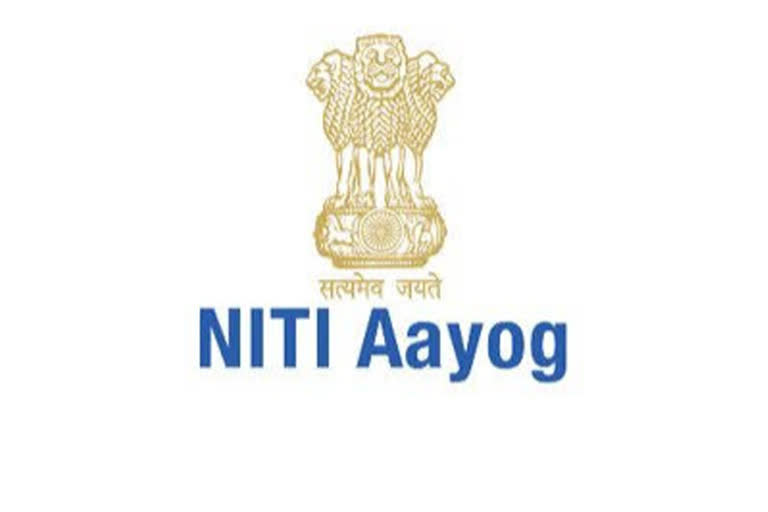New Delhi:Observing that urban India will bolster Indian economy's growth, NITI Aayog report titled ‘Reforms in Urban Planning Capacity in India’ recommended reforms in urban planning capacity.
“In the coming years, urban India will power the growth of the Indian economy. Urban challenges, including town planning, need greater policy attention in our country. There is a compelling need to plug the gaps in urban planning capacity in the country, else a huge opportunity for rapid, sustainable and equitable growth would be at risk of being missed,” said NITI Aayog Vice-Chairman Dr Rajiv Kumar.
CEO Amitabh Kant emphasized, “Urbanization is the driving force of the Indian economy. The country has reached a turning point in its transformation. It will be half urban in a couple of decades. This is the first time in the history of India that the question of urban planning capacity has been dealt with in-depth.” He also added that “Greater synergies among the public and private sectors and education institutions will provide a massive boost towards making Indian cities more liveable, competitive, and sustainable.”
Indian is home to 11% of the total global urban population, the report said. Noting that India will surpass China as the most populous country in the world by 2027, the report has suggested recommendations for urban planning.
Read:Bad Bank framework unveiled, Rs 30,600 crores earmarked
The report made suggestions for unblocking bottlenecks in the value chain of urban planning capacity in India. The report recommended a Central Sector Scheme ‘500 Healthy Cities Programme’, for a period of 5 years, wherein priority cities and towns would be selected jointly by the states and local bodies.Every city must aspire to become a ‘Healthy City for All’ by 2030.
Further, the report recommended a sub-scheme ‘Preparation/Revision of Development Control Regulations’ for strengthening its implementation. Urban planners' shortage can be solved by filling up vacant positions and permitting lateral entry positions for a minimum period of 3 years and a maximum period of 5 years. States may need to undertake requisite amendments in their recruitment rules to ensure the entry of qualified candidates into town-planning positions.
Also, the constitution of a high-powered committee to re-engineer the present urban-planning governance structure as well as the revision of Town and Country Planning Acts were suggested. The formation of an apex committee at the state level is recommended to undertake a regular review of planning legislation (including town and country planning or urban and regional development acts or other relevant acts).
Setting up of ‘National Council of Town and Country Planners’ as a statutory body of the Government of India is also recommended. Also, a ‘National Digital Platform of Town and Country Planners’ is suggested to be created within the National Urban Innovation Stack of MoHUA. This portal will enable self-registration of all planners and evolve as a marketplace for potential employers and urban planners.
In order to enable citizens’ participation, the report has recommended a ‘Citizen Outreach Campaign’ for demystifying urban planning. The role of the private sector can be improved with the adoption of fair processes for procuring technical consultancy services, strengthening project structuring and management skills in the public sector, and empanelment of private sector consultancies.
In addition, the report also suggested steps for strengthening the urban planning education system. The report stated that the planners' post do not have the requisite of any particular degree. In the backdrop of this, Central universities and technical institutions in all the other States/UTs are encouraged to offer postgraduate degree programmes (MTech Planning) to cater to the requirement of planners in the country in a phased manner. Encouraging healthy competition among the institutions, 'planning' is recommended to be included as a discipline under the National Institute Ranking Framework (NIRF) of MoE. The collaboration of the Ministry of Rural Development, Ministry of Panchayati Raj with respective state rural development departments/directorates is recommended for developing demand-driven short-term programmes on rural area planning.
The report, titled ‘Reforms in Urban Planning Capacity in India’, was released by NITI Aayog Vice-Chairman Dr Rajiv Kumar, CEO Amitabh Kant and Special Secretary Dr K. Rajeswara Rao. Secretaries of the ministries of housing and urban affairs, higher education, and Panchayati raj, and chairpersons of All India Council for Technical Education (AICTE) and Town and Country Planning Organisation (TCPO), Director of National Institute of Urban Affairs (NIUA) and President of Institute of Town Planners India, ITPI also attended the event.
Also read:India second-largest technology hub for Amazon globally: India Head
